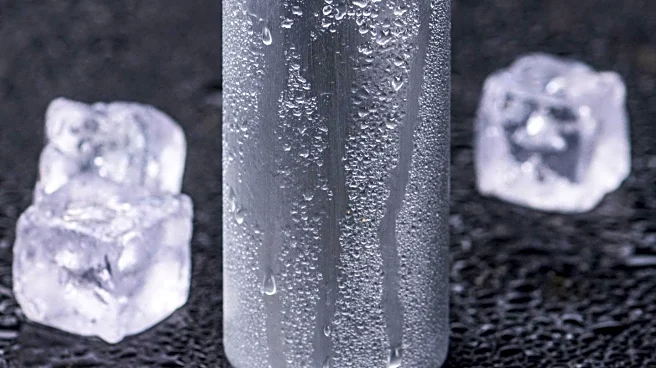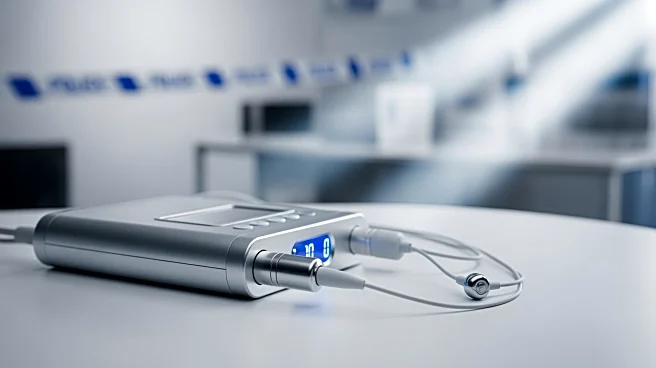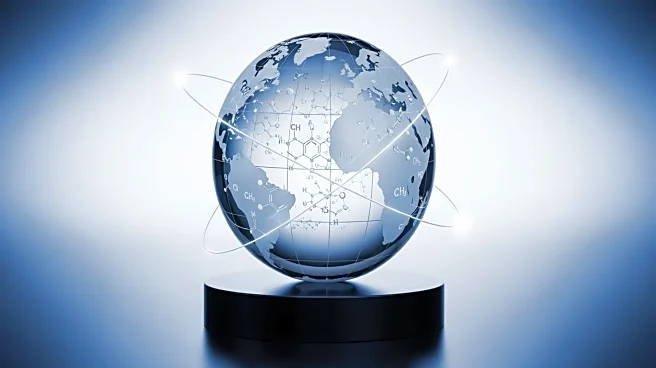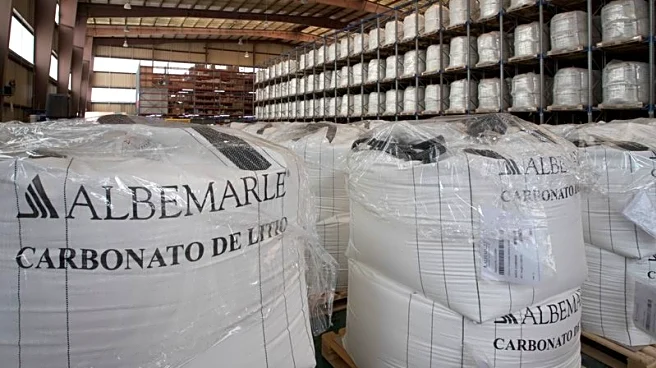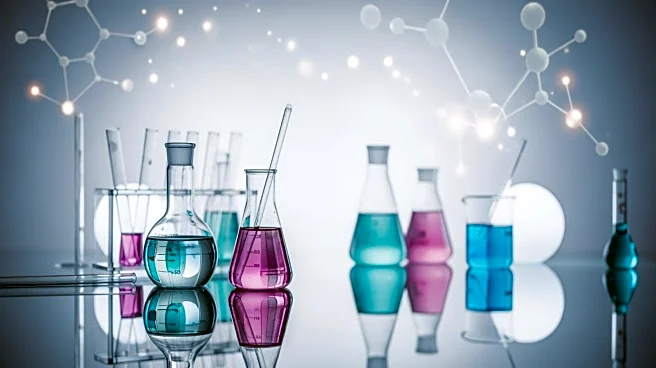What's Happening?
Energy drinks, which claim to boost energy and improve concentration, contain caffeine, sugar, taurine, and other ingredients. These drinks are not recommended for children and teens due to their high caffeine and sugar content, which can lead to side effects such as fast heartbeat, high blood pressure, headaches, and anxiety. Mixing energy drinks with alcohol is particularly dangerous, as it can lead to increased alcohol consumption and risky behaviors. Health Canada has set daily caffeine limits for children, but energy drinks often exceed these limits.
Why It's Important?
The consumption of energy drinks by children and teens can lead to serious health risks, including cardiovascular issues and behavioral changes. The high caffeine content can exacerbate existing health problems and interfere with medications. Parents are encouraged to educate their children about the dangers of energy drinks and promote healthier alternatives like water and balanced diets. The cultural acceptance of energy drinks as a quick energy boost may overshadow the potential health risks, necessitating ongoing public health campaigns.
What's Next?
Health experts continue to advise against the consumption of energy drinks by children and teens. Parents are urged to discuss the potential dangers with their children and encourage healthier hydration options. The focus remains on promoting awareness about the risks of energy drinks, particularly when mixed with alcohol, and advocating for better dietary choices among young people.
Beyond the Headlines
The long-term effects of energy drink consumption are still being studied, but concerns remain about their impact on adolescent health. The marketing of these drinks often targets young consumers, emphasizing the need for regulatory measures to limit their accessibility and advertising. The cultural acceptance of energy drinks as a quick energy boost may overshadow the potential health risks, necessitating ongoing public health campaigns.
